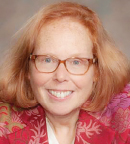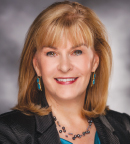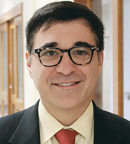Advances in the field of immuno-oncology are revolutionizing cancer care. Ongoing progress with immune checkpoint agents, immune system boosts, cancer vaccines, and monoclonal antibodies continues to yield new and exciting results.
However, with the benefits of rapid expansion comes the challenge of keeping oncologists current on available research findings and best practices in an area in which all aspects of care fundamentally differ from traditional therapies. In a recent survey, less than 15% of oncologists reported a high familiarity with the immune system, and 72% indicated a need for additional education in immunotherapy concepts.1
To address the growing demand and documented need for immunotherapy education and research across cancer types, ASCO and the Society for Immunotherapy of Cancer (SITC) will co-sponsor the inaugural ASCO-SITC Clinical Immuno-Oncology Symposium, to be held February 23–25, 2017, in Orlando, Florida. The new symposium is designed to bring together scientists, clinicians, and patients to learn about and collaborate on every aspect of immuno-oncology’s clinical application.

Mary L. (Nora) Disis, MD, FASCO
“The field of immuno-oncology is rapidly advancing with new agents coming to the clinic each month,” said Mary L. (Nora) Disis, MD, FASCO, Chair of the ASCO-SITC Clinical Immuno-Oncology Symposium Program Committee. “These drugs have new mechanisms of action compared to classic chemotherapy and unique side effect profiles. Keeping oncologists up to date with the newest immuno-oncology science and clinical results is important for the use of these agents in the clinic.”
Merging Research and Clinical Contexts
One of the main goals of the Immuno-Oncology Symposium is to illuminate the ways in which immune-based therapies have advanced beyond their initial application to melanoma and explore the clinical issues that arise from their application to other cancer types. The symposium program will include “Immunology 101” sessions, as well as presentations on novel trial designs and high-throughput technologies used to better identify predictive biomarkers.
“There will be something for everyone, whether you are coming from outside of the field, a junior investigator coming into the field, or a clinician wanting to learn more about how best to treat your patients,” Dr. Disis said.
The symposium will cover the full range of immunotherapy approaches, including vaccines, oncolytic viruses, adoptive T-cell therapy, and combination immunotherapy approaches, and will also include formal opportunities for robust networking, discussion, and interaction. Attendees can expect to leave the conference with a broader knowledge of immunology and how best to apply its principles to their treatment of patients with cancer.
“There are so many new and exciting agents coming into the clinic for immunotherapy, from monoclonal antibodies targeting the next generation of checkpoint inhibitor proteins to oncolytic virus therapy, chimeric antigen receptor (CAR) T-cell therapy, and new approaches to cancer vaccines,” Dr. Disis said. “This joint meeting allows us to bridge the progress of the field from the SITC meeting in November to the ASCO meeting in June, which is truly exciting.”
A Collaborative Effort
ASCO has implemented several initiatives to address the need for focused education on topics related to immuno-oncology, including an online learning course through ASCO University and a growing number of education sessions at its Annual Meeting and thematic cosponsored symposia. In partnering with SITC, ASCO hopes that this new symposium will provide further opportunities for education as well as scientific exchange and collaboration.

Julie M. Vose, MD, MBA, FASCO
“Immunotherapy is rapidly transforming the treatment of patients with cancer.... Together, ASCO and SITC can help equip the oncology community with the necessary knowledge and resources to effectively integrate immunotherapy into their patient care,” said ASCO Past President Julie M. Vose, MD, MBA, FASCO.
Established in 1984, SITC is the world’s leading nonprofit organization of medical professionals dedicated to improving cancer patient outcomes by advancing the development, science, and application of cancer immunotherapy and tumor immunology. SITC comprises influential basic and translational scientists, practitioners, health-care professionals, government leaders, and industry professionals around the globe. Through educational initiatives that foster scientific exchange and collaboration among leaders in the field, SITC aims to one day make the word “cure” a reality for cancer patients everywhere.

Howard L. Kaufman, MD, FACS
“During this historic time when immunotherapy is becoming established as a standard approach to the treatment of cancer, SITC is proud to collaborate with ASCO to bring the latest knowledge and advances in patient management to physicians and other health-care providers,” said Howard L. Kaufman, MD, FACS, SITC President, and Symposium Chair-Elect.
Representatives from both ASCO and SITC comprise the Symposium Program Committee, which developed the educational and scientific program for the meeting. Speakers will include global experts in various immuno-oncology specialties and will contextualize the latest science for clinical application.
Key Details
Abstracts summarizing new, ongoing, and updated research in biomarkers and inflammatory signatures; humoral immunity for diagnosis and therapy; immune checkpoints and stimulatory receptors; modulating innate immunity; and therapies targeting T cells may be submitted now through Tuesday, October 18, 2016, at 11:59 PM (EDT). Accepted abstracts will be presented at the Symposium in oral and poster sessions.
Visit immunosym.org to learn more, submit an abstract, register, and reserve your hotel. ■
Reference
© 2016. American Society of Clinical Oncology. All rights reserved.

